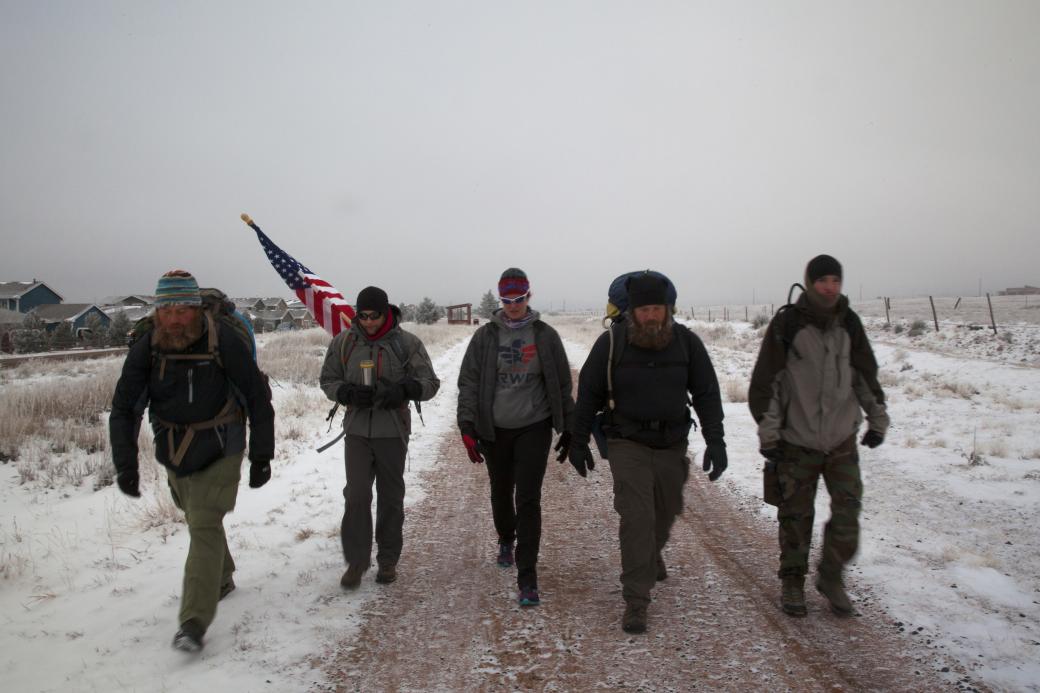A Spotlight On Our Soldiers
In the 1800s, it was known as “Decoration Day,” when soldiers’ graves would be decorated with flowers.
Today we know it as Memorial Day, a time to remember the fallen men and women of our armed forces. They made the ultimate sacrifice in fighting for this country, and each one had a story and a past, with unique struggles and triumphs. This Memorial Day, as we honor these men and women, consider these New Day films that depict the complexity and diversity, as well as the humanity and heroism, of our service members.

In Almost Sunrise, two veterans embark on an epic 2,700-mile trek on foot across America seeking redemption and healing as a way to close the moral chasm opened by war. Their odyssey inspires an inner journey that culminates in a spiritual transformation. Filmmaker Michael Collins began the film after hearing that twenty veterans commit suicide every day. “I realized right then and there that there was a crisis in our country,” says Collins. He teamed with producer Marty Syjuco to present a story about “moral injury” – lasting wounds to the soul caused by participation in events that go against one’s sense of right and wrong. Almost Sunrise and its 15-minute companion film Voices of Resilience shine a light on a condition that is as old as the dawn of battle. The goal is to help those who have seen war make meaning of their experience and reclaim their lives.
Filmmaker Heather Courtney followed a similar path in making her Emmy Award-winning film Where Soldiers Come From. She returned to her hometown in Michigan to film two teenagers in a National Guard unit as they embarked on service in Afghanistan. “I spent nearly two years filming them as regular 19- and 20-year-olds before they became active duty soldiers,” she says. “I spent a lot of time with their families, friends and girlfriends.” By the time their deployment ended, the soldiers were no longer the carefree friends they were before enlisting; repeated bombs blowing up around their convoys had led to TBI (traumatic brain injury) symptoms. As Courtney documented the challenges once they returned home, she says her film became a story about how war affects families and communities. “But,” she adds, “at its heart it is still a film about growing up.”
Patriot Guard Riders by Ellen Frick takes us on a solemn ride to funerals of soldiers killed in action. Our guides are a 250,000-strong motorcycle group that formed to protect grieving families from harassment by a Westboro Baptist Church, a hate group. The riders escort fallen soldiers from airfield to grave, and form a protective shield of honor and respect. Soldiers are dying and families are suffering. The film reveals an unlikely but powerful bond between the riders, the grieving families and the military. Their stories chronicle a new kind of patriotism in America, where we honor the troops even if we don't believe in war.
In New American Soldier (no longer distributed by New Day Films), directors Anna Belle Peevey and Emma Cott tackled two hot-button issues in US politics: immigration and the wars in Iraq and Afghanistan. They captured the stories of three immigrant soldiers through training and deployment, as they took steps towards US citizenship. For each soldier, the Army provided an opportunity. Clarissa Calderón emigrated from Peru as a young girl and didn’t think of enlisting until a recruiter told her the Army would pay for medical school. Seth Donkor won the visa lottery in Ghana and was able to live out his Rambo fantasy as a private in the US Army. And for Victor Toledo Pulido, whose family walked across the US-Mexico border when he was seven, the Army offered a way out of the farmlands of California's Central Valley.
Finally, in her film Hunting in Wartime, Samantha Farinella documented the longer lasting effects of war, profiling Tlingit Native Americans from the village of Hoonah, Alaska, who served in the Vietnam War. Their stories capture the complexity of serving a country that systematically oppressed them — a government that prohibited the Tlingit language, over-logged their forests, and established laws that robbed returning vets of their ancestral trade as fishermen. Many of the vets succumbed to the horrors of alcoholism, PTSD and suicide. Some were able to climb back out to lead the next generation back to their Tlingit heritage. “It was my privilege that the veterans on the island entrusted me with their experiences,” Farinella says. “Their unique stories offer a new perspective on the Vietnam War — and war in general — from a group that is rarely heard, much less seen.” Check out more New Day films on veterans.